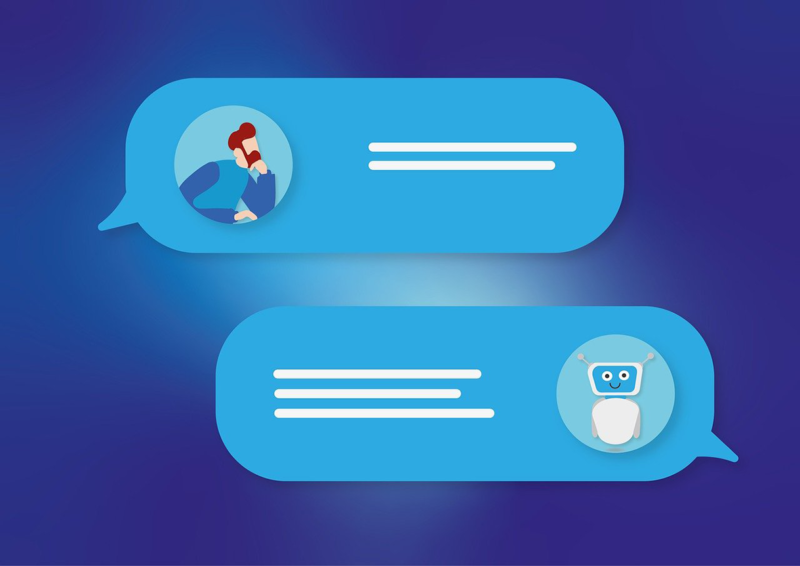The Rise of AI in Customer Service: How Bots Are Transforming the Industry
October 29, 2024

Artificial Intelligence (AI) has become an integral part of customer service, transforming how businesses interact with their customers. AI-powered bots and automation tools are enhancing service efficiency, improving response times, and providing a more personalized experience. Here’s a closer look at how AI is reshaping customer service and the benefits it brings to the industry.
1. AI-Powered Chatbots: The Future of Customer Support
AI chatbots are revolutionizing customer service by handling common inquiries and providing instant support. These bots are programmed to answer frequently asked questions, guide customers through processes, and offer assistance 24/7.
- Advantages: Chatbots reduce wait times and offer quick responses, improving customer satisfaction.
- Limitations: While effective for simple queries, chatbots may struggle with complex issues that require human empathy and problem-solving skills.
AI chatbots are a cost-effective solution for businesses, allowing human agents to focus on higher-priority tasks.
2. Personalized Customer Experiences Through AI
AI algorithms analyze customer data to provide personalized experiences, making each interaction more relevant and engaging. By understanding user preferences, AI-powered tools can recommend products, offer tailored solutions, and anticipate customer needs.
- Examples: AI can suggest products based on browsing history or remind customers of abandoned carts.
- Impact: Personalization fosters customer loyalty and increases the likelihood of conversions.
Through machine learning, AI learns from interactions, continuously refining its responses to meet customer expectations.
3. Sentiment Analysis: Understanding Customer Emotions
Sentiment analysis, powered by AI, helps businesses gauge customer emotions in real-time. By analyzing text or voice interactions, AI can determine whether a customer is satisfied, frustrated, or disappointed.
- Applications: AI-driven sentiment analysis can trigger alerts for human agents to intervene when a customer is unhappy, ensuring issues are resolved quickly.
- Benefits: Understanding customer emotions allows for better service and proactive engagement, preventing escalations.
Sentiment analysis enables companies to provide more empathetic support, even with automated systems.
4. Self-Service Solutions with AI
AI-powered self-service options empower customers to find answers independently, reducing the need for human assistance. From interactive FAQs to virtual assistants, self-service tools are becoming more sophisticated with AI integration.
- Examples: AI-based knowledge bases and virtual help desks guide users through troubleshooting steps and common queries.
- Customer Benefits: Self-service solutions save time and provide users with autonomy, especially for straightforward questions.
By enabling customers to solve their issues, AI self-service options reduce support demand and improve efficiency.
5. Predictive Customer Support
Predictive AI tools can anticipate potential issues before they arise, allowing companies to address problems proactively. By analyzing past interactions and identifying patterns, AI can predict customer needs and prepare solutions in advance.
- Applications: Telecom companies use AI to detect service issues and notify customers before they call support.
- Impact: Predictive support reduces the volume of incoming support requests and increases customer satisfaction.
This proactive approach enhances the customer experience by preventing frustration and offering timely resolutions.
6. Streamlining Workflows for Customer Service Agents
AI doesn’t just interact with customers; it also supports customer service agents by automating repetitive tasks, organizing tickets, and prioritizing cases. AI tools provide agents with relevant customer data and insights, streamlining workflows.
- Benefits for Agents: AI reduces the administrative workload, allowing agents to focus on resolving complex issues.
- Enhanced Productivity: By automating routine tasks, AI improves agent efficiency and speeds up response times.
AI serves as a helpful assistant for human agents, making customer service departments more productive and agile.
7. Continuous Learning and Improvement
One of AI’s greatest strengths is its ability to learn from every interaction. Machine learning enables customer service bots to refine their responses and adapt to evolving customer needs over time.
- Example: AI learns which phrases lead to positive outcomes and adjusts its responses accordingly.
- Impact: Continuous improvement ensures that AI-powered customer service becomes more accurate and effective over time.
AI’s ability to learn and improve allows businesses to maintain a high standard of customer service without extensive reprogramming.
8. AI’s Role in Reducing Operational Costs
By automating tasks and handling high volumes of inquiries, AI significantly reduces operational costs for businesses. Automated support systems can operate around the clock without incurring additional costs, making them a budget-friendly option.
- Cost Savings: AI-driven customer service reduces the need for large support teams, lowering payroll expenses.
- Scalability: AI systems can handle multiple queries simultaneously, allowing businesses to scale support without additional infrastructure.
The cost efficiency of AI-powered customer service makes it an attractive solution for businesses of all sizes.
Conclusion
AI is transforming the customer service industry by providing efficient, personalized, and scalable support. From chatbots and self-service options to sentiment analysis and predictive support, AI offers businesses powerful tools to enhance the customer experience while reducing operational costs. As AI technology continues to evolve, its role in customer service will only grow, making interactions smoother, faster, and more satisfying for customers.







